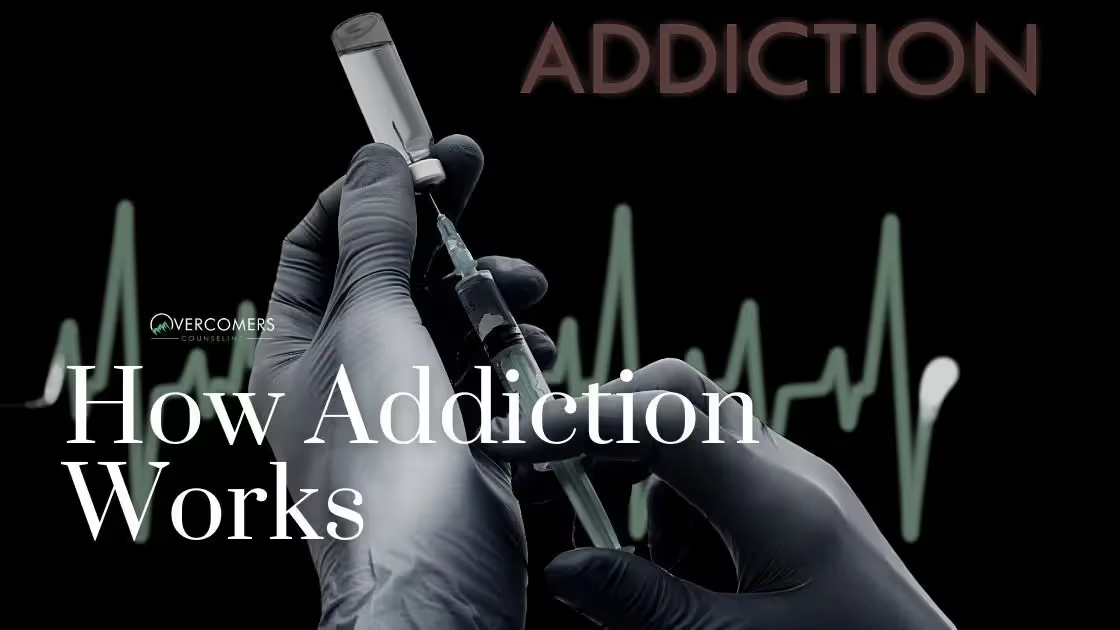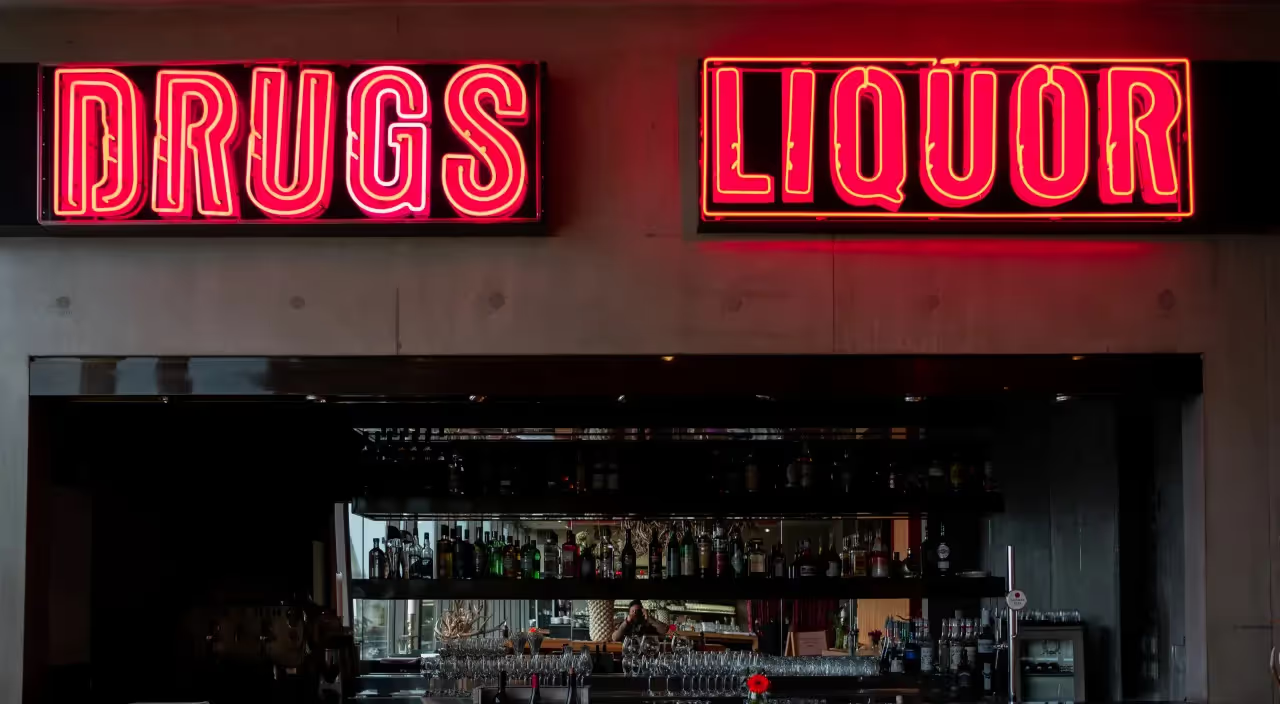Addiction is a complex disease that deeply affects the brain, primarily involving the neurotransmitter dopamine, which significantly alters how we perceive...

Addiction is a complex disease that deeply affects the brain, primarily involving the neurotransmitter dopamine, which significantly alters how we perceive pleasure and reward.
As addictive substances and other drugs flood the brain, they target the prefrontal cortex, impairing decision-making and increasing the struggle with substance use disorders.
Seeking counseling and overcoming addiction is not just a battle against withdrawal symptoms but also a journey through overcoming shame and rebuilding self-esteem, often overshadowed by negative emotions and shame and guilt.
Repeated exposure to addictive substances can lead to personality disorders, further complicating the path to addiction recovery.
When one asks 'how does addiction work,' individuals can begin to address and overcome shame and take meaningful steps toward reclaiming their lives.
There are certain factors that raise a person's likelihood of becoming an addict.
And, unfortunately, a lot of these are things that you can't change.
There is a very large stigma attached to drug and alcohol abuse: despite the fact that addiction is so common in the United States and many people are overusing alcohol and drugs.
This stigma has been shown to increase people's addictive behavior and decrease their chance of seeking help.
This means that if you or someone you know is struggling with addiction, try not to judge them.
This might seem like silly advice, but research shows that drug users and addicts who are not treated as shameful are much more likely to recover.
This might be tied to the fact that compulsory treatment, criminal charges, and interventions have proven to be extremely ineffective in reducing drug use.
Making someone feel like a criminal for having a disease often increases their propensity for criminal activity.
Also, research has shown that compulsory or forced treatments aren't effective.
An addict has to want to seek treatment for it to be effective.
This is why shame-reduction around addiction is so important: people are more likely to seek help if they don't feel like they are being judged.

Addiction begins in the brain as it reacts to enjoyable experiences, releasing chemicals like dopamine.
This neurotransmitter is responsible for feelings of pleasure and happiness during activities such as eating or socializing. Unfortunately, addictive substances hijack this reward circuit, leading to a cycle of dependency.
Emphasizing the complexities of addiction helps individuals recognize it as a brain disorder, paving the way for overcoming addiction and improving one's quality of life.

Addiction gradually transforms into dependency as the brain adapts to the presence of addictive substances through its inherent neuroplasticity.
This ability to change and evolve, which once helped us learn and adapt, can lead to substance use disorders when the brain begins to rely on drugs or alcohol for dopamine production.
Over time, the brain demands larger doses to achieve the same effect, shifting the focus from pleasure to necessity.
Referring to a diagnostic manual can emphasize how an addictive substance can not only affect dopamine but also disrupt other neurotransmitters, complicating the treatment process.
This dependency can have serious consequences on mental health, often leading to more shame and feelings of inadequacy.
It's crucial to remember that struggling with addiction doesn't define a person as bad; rather, it's about finding ways to regain control and restore balance in life.
As the brain becomes dependent on large amounts of a substance in order to function, the health of the brain begins to deteriorate.
People who abuse substances will not just have trouble enjoying other activities, addiction will actually decrease the brain's ability to function over time.
One key aspect of the brain that is affected is your executive skills. Your executive skills are your ability to focus, plan, make decisions, and engage with your life.
This is why we so often see addicts devolve into "bad behavior."
This article has mentioned the stigma attached to addiction.
But, while addiction isn't caused by bad choices it can create them by lessening your brain's ability to make good choices.
This is especially prevalent in those who started abusing at a young age.
Research shows that the brain doesn't stop maturing - due to neuroplasticity - until someone is in their early 20s.
This means that someone who begins abusing drugs or alcohol at a young age can permanently rewire their brain for addictive behavior.
This is why choices are such a bad approach.
Addiction isn't created by weakness, bad character, or poor choices.
Addiction is created by physical changes in the brain.
Understanding how addiction works is important.
It's important because there is much misinformation about addiction that only serves to feed the cycle of addiction.
When you know how addiction works, you've taken your first step toward getting treatment for yourself or someone else.
You know that addiction isn't someone's fault.
It's a by-product of our brain's ability to adapt to our behavior - even if that behavior isn't good for us like an addiction.
Yes, alcohol abuse is a treatable condition. However, it often requires professional treatment to overcome. With the right support, though, anyone can overcome alcohol abuse and regain control of their life. It's important to reach out for help if you or someone you know is struggling. With the right treatment, anyone can overcome alcohol abuse and regain control of their life.
Treatment for alcohol abuse often includes counseling, support groups, and medication. With the right help, your spouse can recover from alcoholism and go on to lead a healthy and happy life.
The best way to help an addict without enabling them is by setting boundaries and getting help for yourself. It is important to remember that you cannot control the addict's behavior, but you can offer support and understanding. With time and patience, you can help your loved one recover from addiction.
Alcoholism refers to a disease that is characterized by a strong craving for alcohol and an inability to control one's drinking.
Some resources for family members of addicts include therapy, counseling, 12-step programs, and other support groups. It is important to seek out these resources to get the tools you need to deal with your loved one's addiction. You can also find help for yourself through these resources.
Alcohol abuse is a pattern of drinking that leads to problems in one's personal, professional, or social life.